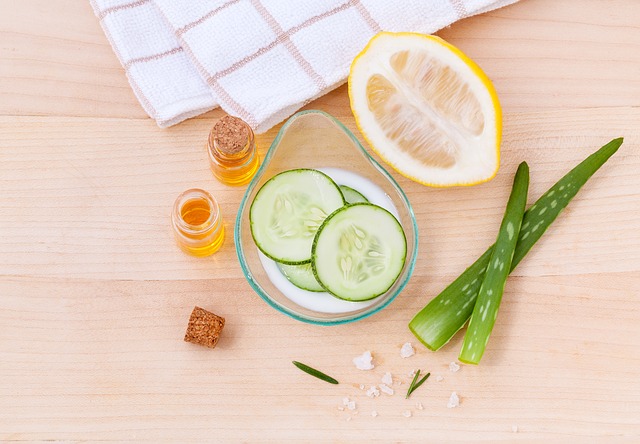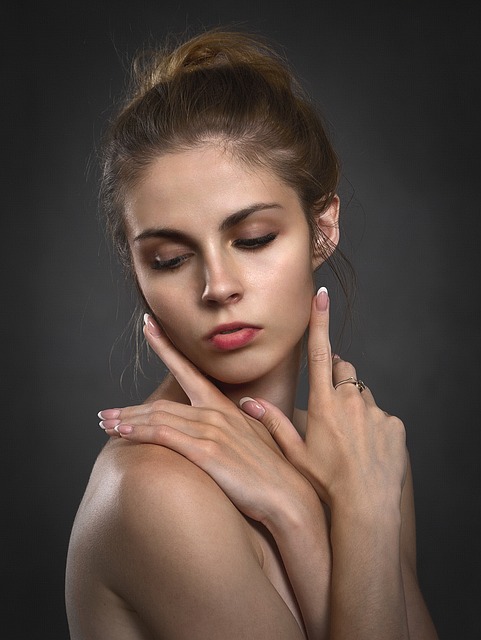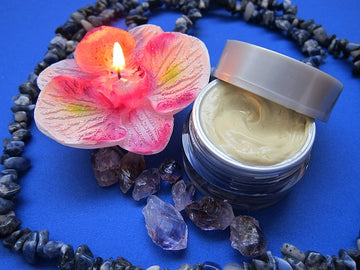Choosing Skin Care Products: Know Your Ingredients
You've heard they can turn back the clock on aging skin, and having a daily routine with the right products is key to living your most radiant self. Some of the best moisturizers on the market for aging skin start with holistic and organic ingredients -- products made with things like acai, alpha-lipoic acid, an alpha-hydroxy acid. But do they work? Can they actually erase wrinkles, repair sun damage, or fade age spots? Before you go buy a product, it’s a good idea to learn more about these ingredients. A dermatologist can also help you sort out what works, what's hype, and what might help your skin.
Even if you don't want to read this article we have taken the liberty of collecting some of the best anti-aging skin creams for you here.
Antioxidants for Sun Damage and Wrinkles
Most plants have many nutrients in varying amounts. They can counter "free radicals," tiny particles that harm DNA inside of cells. Skin cells with that kind of damage might speed up aging, leading to wrinkles, dry skin, dark circles under eyes, dull skin, and much more. Foods that are rich in antioxidants are good for your skin and your overall health. You can also apply products that have them. Those with the most antioxidants that have been shown to repair damage and slow the aging process include:- Acai oil
- Alpha-lipoic acid
- Green tea extract
- Retinol
- Coenzyme Q10 (CoQ10)
- Caffeine
Other amazing ingredients include...

B Vitamins for Healthy Skin, Hair, and Nails
These essential vitamins appear in multiple forms and complexes in skin-care products. Yet the function of all vitamin B derivatives is the same: to convert food into energy to fuel vital body processes — including those responsible for healthy, firm skin. "Vitamin B and all its derivatives are necessary for healthy skin, hair, and nails," says Joel Schlessinger, MD, a dermatologist in Omaha, Nebraska. B vitamins could be especially potent in moisturizers, Dr. Schlessinger says. When these vitamins are among the ingredients in your skincare, damaged cells will heal and regenerate more quickly. And if you're looking to supplement your anti-aging cream, one of the best natural sources of vitamin B is bananas.
Coenzyme Q10 to Protect Collagen
Coenzyme Q10 (vitamin Q) is a strong antioxidant that will help build the foundation needed for younger-looking skin. "Coenzyme Q10 helps protect the elastic tissue and collagen that forms your skin," explains Jessica Wu, MD, an assistant clinical professor of dermatology at the University of Southern California in Los Angeles. As we get older, our natural coenzyme Q10 levels diminish, slowing the skin's ability to rejuvenate and protect itself from damage. To build levels of the coenzyme, many find that taking a dietary supplement in addition to using topical creams gives amazing results. There's a bonus to coenzyme Q10 supplements, too — some researchers believe they aid in preventing heart disease.Copper to Prevent Sagging and Fill Wrinkles
You're probably imagining pennies, but the copper we're talking about is found in trace amounts in skin cells, where it binds proteins together. Necessary for collagen formation, the anti-aging ingredient helps protect the skin to prevent sagging and to fill in wrinkles. Clinical studies have shown that copper contributes to the clearing and renewal of fractured collagen, making it an excellent ingredient for those who wish to improve the look of sun-damaged skin and scars. "Copper is nonirritating," explains Dr. Wu, "so it's a good alternative for those with more sensitive skin who may not be able to tolerate retinoids."Green Tea to Revitalize Your Skin
You may sip a cup of warm green tea to relax, but the ancient plant from which the tea is brewed is replete with nutrients that recharge your skin. While the healing medicinal properties of the leaf redound to phytochemicals known as polyphenols, it's the stimulant qualities that can have an energizing effect on aging skin. "Green tea has an incredible effect on dark circles — which is especially striking when combined with the caffeine in an eye cream," says Schlessinger. Green tea is also an antioxidant, meaning that it aids in preventing and repairing the damage done by oxidation, which helps break down skin cells.Peptides to Stimulate Collagen Production
Because of the promising results of clinical research, such as a study published in December 2018 in the International Journal of Peptide Research and Therapeutics, peptides are becoming increasingly popular anti-aging skin-care ingredients. Peptides are short chains of amino acids, the building blocks of proteins. Most peptide creams are designed to stimulate collagen to help the appearance of wrinkles, explains Dr. Zeichner. But not all peptide creams are created the same, so you should stick to products that have gone through clinical testing.Vitamin E to Reverse Damage and Rejuvenate Skin
Vitamin E is a powerhouse when it comes to reversing the type of skin damage that leads to dryness, collagen destruction, and fine lines and wrinkles. The vitamin neutralizes cell-damaging free radicals, which are triggered by environmental factors like sun exposure. "Vitamin E is a great antioxidant to look for in rejuvenating skin creams, and it can assist with wound healing as well, by strengthening the skin barrier," says Schlessinger. This is why pure vitamin E oil remains highly (and inexpensive) salve for cracked cuticles and scars from cuts, burns, and surgery. As we age so does our skin and the way we care for it is important.

In Your 20s...
Now is the time to develop good habits to preserve your youthful glow, says Jennifer Linder, MD, assistant clinical professor of dermatology at the University of California, San Francisco. The one guaranteed to shore up your chances of beautiful skin in the decades to come? You guessed it: applying sunscreen religiously. You might be noticing dryness for the first time, so a moisturizer is an essential part. If you're one of the many 20-something women who suffer from acne, you may see that it's shifted from the forehead and midface to the jawline, which means it's hormone-related. The breakout treatments you've been using may now be too aggressive; it's time to switch to a less drying routine.Your Face Basics
Cleanser It's best to wash your face at least twice a day, but if you can manage only once, do it in the evening: Never sleep in your makeup, says Linder. Does your skin feel squeaky-clean after cleansing? Then you're stripping it of necessary natural oils, and it will eventually feel very dry, tight, and itchy. Use a nonsoap face wash. For oily complexions, one with salicylic acid or benzoyl peroxide is a good choice. For combination or dry skin, try a creamy cleanser.
Moisturizer Look for one with broad-spectrum (UVA/UVB) protection and SPF 30. Linder recommends a moisturizer with titanium dioxide or zinc oxide. To ensure that you remember to use it, keep the bottle near your sink; apply it all over your face, neck, décolleté, and— whenever they're exposed—the tops of your ears as well.
Nighttime Treatment Peptides (strings of amino acids) may have a role in preventing fine lines and wrinkles, so try a peptide serum with hydrating ingredients like hyaluronic acid. If you have acne or are already seeing signs of sun damage like sunspots (hyperpigmentation), use a prescription retinoid lotion or cream or a product containing retinol, the over-the-counter version.
In Your 30s... If you've been diligent with sunscreen, you most likely haven't seen a radical change in your skin since your 20s. But this is the decade when your complexion may start to look dull because of slower cell turnover, so regular exfoliation should be one of your top priority, says Ellen Marmur, MD, associate clinical professor of dermatology at Mount Sinai Medical Center in New York City. Sun lovers will see an increase in fine lines and damage like dark spots and loss of elasticity—but it's never too late to get with the (sun protection) program. This is also the decade when you may begin to notice crow's-feet, dark circles, and sagging of the lower eyelids, says Doris J. Day, MD, clinical associate professor of dermatology at NYU Langone Medical Center.
Your Face Basics
Cleanser You want to continue to protect your skin's natural barrier, so use a mild gentle face wash in the morning and evening, says Marmur. To make dull skin more luminous, try a cleanser with hydroxy acids, which increase cell renewal; you can also use a mild scrub several times a week or a cleansing brush.
Serum and Moisturizer Keep it up with the broad-spectrum SPF 30 hydrator; for an extra boost of protection from environmental aggressors like pollution and UVA/UVB rays, layer a vitamin C serum underneath. (It can also help with hyperpigmentation, says Linder.) Look for one containing no less than 15 to 20 percent L-ascorbic acid, the most effective form of the vitamin. Facial oil is a good way to moisturize and add back your glow, says Marmur. It has some light-reflective qualities and drenches the skin, plumping it and temporarily diminishing fine lines. Just don't forget to add sunscreen.
Nighttime Treatment Your focus should be on repairing the thin skin around the eye area. Choose an undereye cream with niacinamide (anti-redness), caffeine (anti-inflammatory), or retinol (collagen building), says Day. For the rest of your face, a prescription retinoid or a retinol night cream is your best bet for preventing wrinkles.

In Your 40s... In this decade, dark-skinned women are usually just beginning to see fine lines, wrinkles, and other age-related issues like loss of volume, says Brooke Jackson, MD, associate professor of dermatology at the University of North Carolina at Chapel Hill. In fair-skinned women, sun damage continues to show up as splotchiness and hyperpigmentation. And many 40-somethings contend with hormone-related problems such as acne and premenopausal dryness.
Your Face Basics
Cleanser Use a milky or creamy cleanser both morning and night. As long as it's gentle, any cleanser is fine, although if you're plagued by occasional pimples, try a face wash with salicylic acid.
Serum and Moisturizer To repair and protect, look for a serum high in antioxidants, like vitamin C or E, or epidermal growth factors to help stimulate collagen production, says Jackson. (If you've become particularly concerned about your eye area, give your eye cream an extra boost with a specialized serum containing the same ingredients.) Over that, layer a broad-spectrum UVA/UVB SPF 30 moisturizer.
Nighttime Treatment It's worth it to spend a bit more on your bedtime regimen, says Jackson. Regular use of a prescription retinoid is like making a deposit in your 401(k): Retinoids boost reserves of collagen and elastin, preventing future sagging. Not only are they antiaging, but they also reduce acne, a bonus for women still suffering through breakouts.
In Your 50s... It's true at every age, but especially important now: Being beautiful comes from feeling happy and taking good care of yourself. So if you haven't made that your primary goal, do it today, says Cheryl Karcher, MD, associate clinical professor of dermatology at NYU Langone Medical Center. In your 50s, you really appreciate the benefits of having made wise lifestyle choices, which are more important than genetics in influencing the rate at which you age, says Darrick Antell, MD, assistant clinical professor of surgery at Columbia University. In his studies of twins, he found that not smoking, avoiding excess sun exposure, and managing stress can have a major impact. You may be noticing thinner skin and sagging. Bone loss around the jaw can lead to jowls; fat loss can create a sunken look. Lines and wrinkles deepen, and hyperpigmentation increases. You may also notice that your skin is dry and flaky.
Your Face Basics
Cleanser You want to protect your skin barrier, because the drier your skin, the more susceptible it is to damage, says Karcher. Wash daily with a creamy moisturizing cleanser for sensitive skin.
Serum and Moisturizer Start with a serum containing antioxidants like vitamin C or E, resveratrol, or green tea. Over that, layer your moisturizer and a broad-spectrum sunscreen with an SPF of at least 30. Redness due to rosacea can be minimized with Mirvaso, a new gel that decreases swelling of blood vessels. Hyperpigmentation can be reduced with creams containing 2 percent hydroquinone, phytophenol, or kojic acid.
Nighttime Treatment It's simple: Moisturize and repair. You need a rich night cream with peptides, a hydrating prescription retinoid, or retinol cream or lotion. If the retinoid causes dryness, mix it with a moisturizer or a night cream, or use it only three times a week. You can apply retinoid cream up to your lower eyelids. Be sure to use the night cream on your neck and the retinoid on your chest and the backs of your hands.
Here at Shal Radiance we have taken the liberty of collecting some of the best anti-aging creams for you > Click Here.
History and Citations
- Best Anti Aging Skin Cream Products
- Moisturizer For Aging Skin
- Best Moisturizer For Skin Over 60
- Anti Wrinkle Creams
